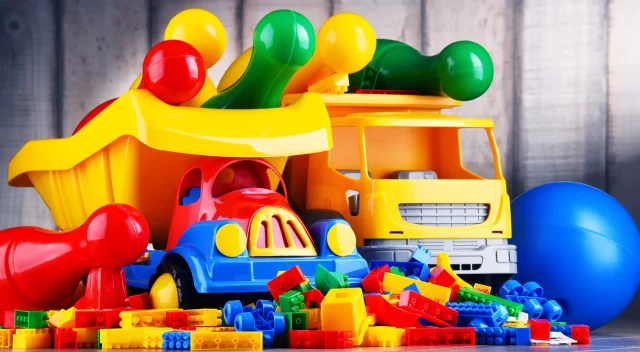The plastic toy business could play a crucial role in extending Bangladesh’s export portfolio, and its exports are projected to reach $466.31 million by 2030 if the present growth of 24%b continues. According to Md. Jashim Uddin, President of the Federation of Bangladesh Chambers of Commerce and Industry, “Bangladesh might become the world’s 28th largest exporter of toys if the current growth rate continues”. The article contains Proliferative View of Plastic Toys Exports in Bangladesh.
To reach this milestone, local producers must take the required steps to increase the production of world-class products and explore new markets. “Therefore, we are continually working to advance this industry. For instance, attempts are made to decrease the import tax on raw materials”, Mr. Jashim Uddin quoted in a seminar titled “Plastic Toy Industries of Bangladesh: A Potential Export Diversification Sector,”.
The event was co-hosted by the Bangladesh Plastic Goods Manufacturers and Exporters Association (BPGMEA) and Export Competitiveness for Jobs (EC4J), a World Bank Group-funded project of the commerce ministry. The event highlighted the progress made in the local production of plastic toys at the Centre for Integrated Rural Development for Asia and the Pacific (CIRDAP) auditorium in Dhaka. Spain is Bangladesh’s largest export market for plastic toys, while Italy and France are tied for second place.
From July 2021 to April 2022 of the current fiscal year, exports of plastic products reached $128.77 million, with toys accounting for around $37.10 million, which is 29% of the total. Ferdous Ara Begum, CEO of Business Initiative Leading Development, said, “ Bangladeshi toys have already reached Europe and North America. With such achievements, it’s expected that the toy subsector of the plastics industry might play a significant role in expanding non-traditional exports.”
About a decade ago, 90 percent of Bangladesh’s toys were imported from abroad, but now the quantity has come down to only 10 percent. Mr. Shamim Ahmed suggested that the tariff on imported toys should be increased from $7.5 per kilogram to $20 per kilogram. Former BPGMEA president Yusuf Ashraf was also present at the event and urged everyone to work together to find answers to different problems, including the creation of counterfeit goods. “Although the toy market has existed for decades, not a single brand of substance has yet left Bangladesh. Therefore, we are still satisfied with exporting non-branded toys,” according to Mansurul Alam, project director of the EC4J.
Alam continued by stating that local manufacturers must produce products of the highest quality if they wish to compete with internationally famous companies. “To accomplish this, the government must implement several policy initiatives, such as infrastructure cooperation and the decrease of taxes on ancillary imports,” he explained.
Tapan Kanti Ghosh, Secretary of the Ministry of Commerce, stated that the plastic toy business is fast expanding and simultaneously boosting investment in the country. He guaranteed that the government will provide all sorts of assistance to bolster the sector and transform it into an export engine. With a notation of compliance with industry standards that has become a key concern in international trade, Ghosh stated that local toy companies must be modernized and made global market-ready products.
At the event, the BPGMEA urged the government to eliminate the extra levy on all types of toy components to promote the industry’s growth. There are over 100 toy manufacturers in the country, 12 of which are big corporations, and the market is estimated to be worth approximately Tk 7,000 crore. Local producers provide approximately Tk 4,000 crore, while the remainder is imported.
To explore more articles from Business Cloud, Please Click Here!

















